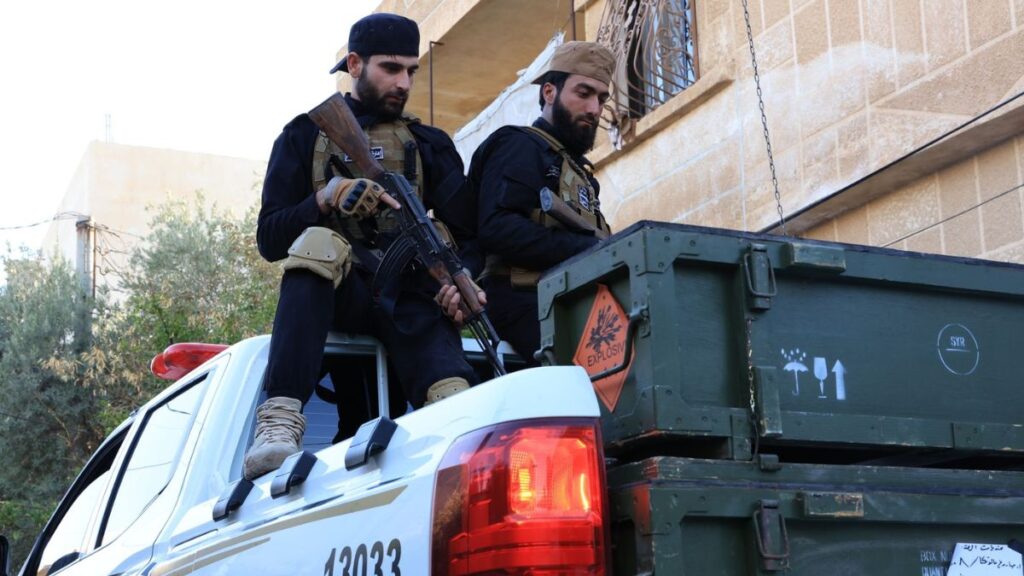
The Lebanese group Hezbollah has firmly denied allegations made by the Syrian Ministry of Interior concerning the arrest of individuals in the western countryside of Damascus on 11 September.
In an official statement, Hezbollah’s media relations office rejected the ministry’s claims “in their entirety”, asserting that the group maintains neither a presence nor operations on Syrian territory. The statement reiterated Hezbollah’s commitment to the stability of Syria and the safety of its people.
Earlier that day, the Syrian Ministry of Interior announced the apprehension of members of a cell it alleged was affiliated with Hezbollah, accusing them of plotting operations within Syria. Authorities reported the confiscation of various weapons, including Grad rockets, during the raid.
Brigadier General Ahmad Dalati, commander of the internal security forces in Damascus countryside, stated that specialised units, in coordination with the General Intelligence Directorate, had arrested what he described as a “terrorist cell affiliated with Hezbollah’s militia” operating in the towns of Saasaa and Kanaker. The arrests followed extensive surveillance and field operations.
According to Dalati, preliminary investigations revealed that the cell members had received training in camps inside Lebanon and were planning attacks aimed at undermining the safety and stability of Syrian civilians. Security forces seized rocket launch platforms, 19 Grad rockets, anti-armour missiles, individual firearms, and large quantities of assorted ammunition.
This is not the first instance in which Hezbollah has denied involvement in Syrian affairs since the collapse of its long-time ally, the Assad regime, on 8 December 2024. In March 2025, the group similarly denied any role in events in Syria’s coastal region, dismissing accusations that it had supported attacks by remnants of the former regime against government security forces. Hezbollah accused certain parties of deliberately implicating it in Syria’s ongoing conflicts to serve political agendas and foreign interests, urging media outlets to avoid spreading misinformation.
March also witnessed violent clashes in the coastal region, initiated by pro-regime groups. These confrontations led to over 1,400 deaths, mostly civilians, including members of the security forces. Reports from the time documented field executions of entire families, as well as acts of torture and abduction.
Campaign Against Hezbollah in Homs and Damascus Countryside
Hezbollah has historically been active in areas near the Lebanese border, including Qusayr in the Homs countryside and parts of Damascus countryside such as Sayyida Zainab, where it previously held considerable influence. During the Syrian uprising, the group was implicated, alongside regime forces, in numerous human rights violations—including the siege and shelling of civilian areas like Zabadani and Madaya between 2015 and 2017.
In July 2025, Syrian intelligence forces in Homs arrested a suspect found in possession of ready-to-use explosive devices intended for what authorities described as “terrorist” acts in the city. Initial investigations linked the individual to a Hezbollah-affiliated cell, with the explosives allegedly smuggled through unauthorised border crossings, according to the Ministry of Interior.
Earlier, in March 2025, the ministry launched a security operation in Sayyida Zainab targeting cells linked to Hezbollah and suspected of planning criminal activities. The Public Security Directorate in Damascus countryside reported the arrest of several individuals as part of the operation, which it said aimed to bolster regional security.
